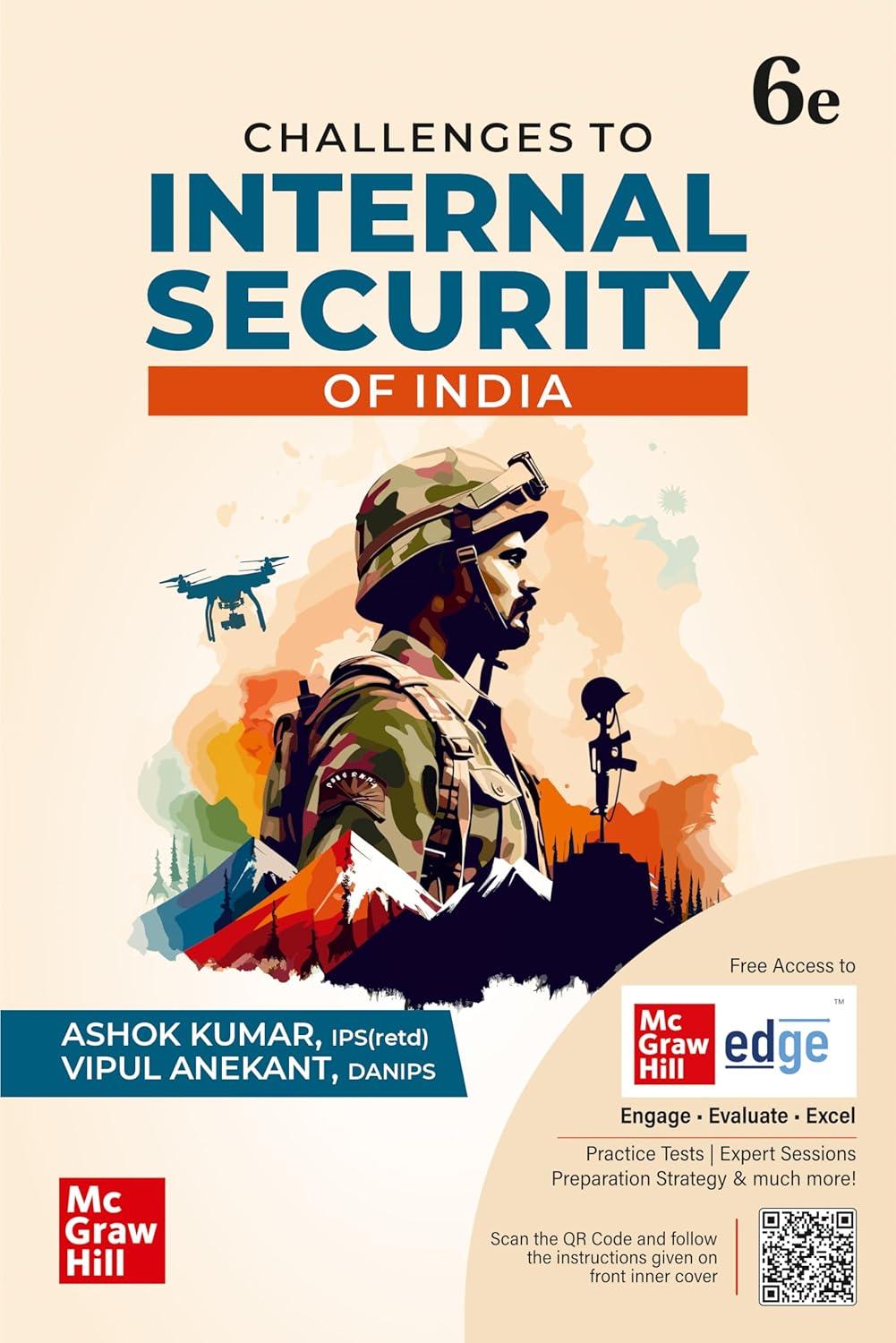About the Book
Internal Security of India by Ashok Kumar and Vipul Anekant is crafted to offer aspirants a profound comprehension of the socio-political dynamics within the country, delving into the interconnections between development and the spread of extremism. Aligned with the syllabi of the UPSC/state PSC, this book meticulously covers all facets of internal security and disaster management.
Its primary aim is to equip aspirants with a comprehensive understanding of diverse internal security issues. Each topic is elucidated with historical context and contemporary significance , ensuring a nuanced understanding. Moreover, modern challenges such as those stemming from social media and cyber security are extensively explored within its pages.
Written in a lucid language, the book is a ready reference for the Civil Services Main aspirants. The sixth edition comes with thoroughly revised chapters for a thorough understanding of government policies regarding internal and external security measures .
McGraw Hill Edge:
With this book, you get access to McGraw Hill Edge – a digital platform with high-quality learning resources that provides you the edge to excel at your exams.
On the McGraw Hill Edge platform, you can access comprehensive study materials and exam preparation strategies , all designed to enhance your preparation and give you the winning edge. Moreover, its mobile and web app interface makes learning convenient and accessible! Follow the instructions given in the book to get access.
Salient Features
⚔️ Thoroughly updated with latest issues and developments faced by Indian security agencies and the armed forces.
🛡️ Section on contemporary and imperative topics like the Kuki-Meitei issue in Manipur, Deep Fake, Cyber terrorism, Khalistan issue in the recent context, Role of Artificial Intelligence in cybersecurity, India’s stand in cybersecurity, Cryptocurrency and much more , to provide an all-rounded coverage of topics.
⚔️ Current incidents are linked with static concepts for micro analysis.
🛡️ Thoroughly examines the role of external state and non-state actors in aiding and abetting terrorism.
⚔️ Extensive practice questions and last few years UPSC questions added at the end of the chapters.
Table of Contents
Chapter 1 Internal Security
Chapter 2 Terrorism – Role of External State and Non-State Actors
Chapter 3 Jammu and Kashmir Militancy
Chapter 4 Insurgency in the North-East
Chapter 5 Left-Wing Extremism – A War Upon State
Chapter 6 Linkages between Development and Spread of Extremism
Chapter 7 Communal Violence
Chapter 8 Organized Crime
Chapter 9 Cyber Security and Role of Social Media
Chapter 10 Security Challenges and their Management in Border Areas
Chapter 11 Security Forces and their Mandate
Chapter 12 Disaster Management





